Small Projects That Can Incrase Your Homes Energy Efficiency
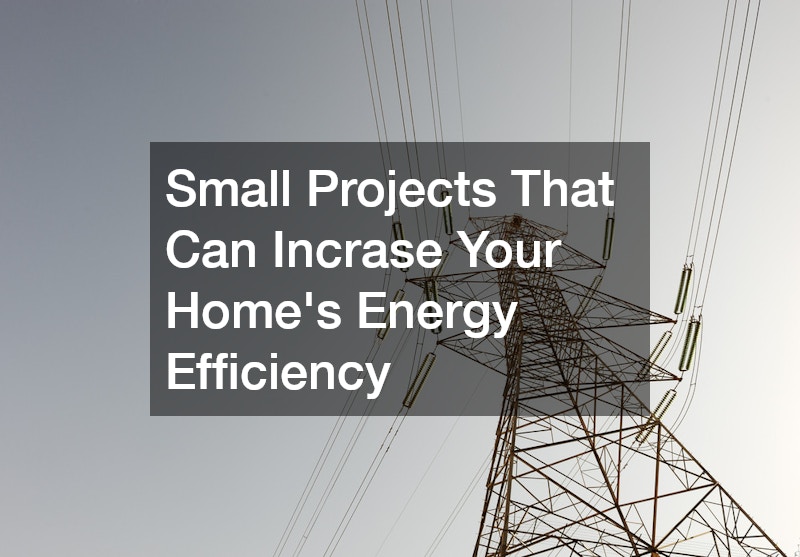
Homeowners today are increasingly looking for ways to lower energy bills, boost comfort, and live more sustainably. While major renovations can certainly improve energy performance, the truth is that you don’t have to overhaul your home to make a difference. Small, practical projects can have a big impact on efficiency and long-term savings. From improving insulation and upgrading lighting to maintaining essential systems like water heaters and HVAC units, there are numerous ways to make your home perform better. Partnering with professionals such as a plumbing company, local HVAC company, or roofing contractor can also ensure each project is done safely and effectively.
What Are Some Quick and Easy Energy Efficiency Projects?
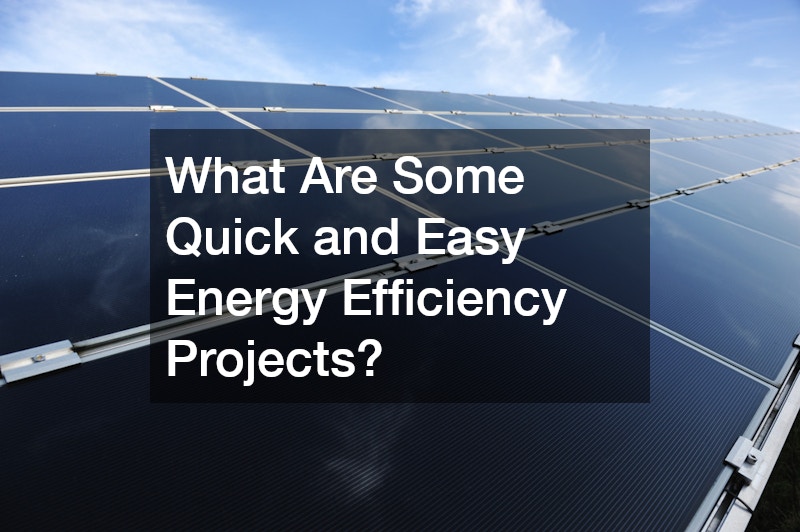
There are several straightforward improvements you can make around the house that immediately enhance efficiency without demanding major investments or specialized tools.
Weather-stripping Doors and Windows
Air leaks around windows and doors are among the biggest energy wasters in most homes. By adding new weather-stripping, you can seal gaps that let in drafts and force your HVAC system to work harder. The materials are affordable and simple to install, yet the results can be significant—especially in older homes with worn seals. Local plumbers and contractors often recommend combining weather-stripping with basic caulking around window frames to achieve the best insulation.
Installing LED Light Bulbs
Replacing incandescent bulbs with LED lighting is one of the easiest steps toward efficiency. LEDs use up to 80% less energy and can last more than a decade. They also generate less heat, which reduces cooling demands during warmer months. When paired with dimmer switches or motion sensors, LED lighting becomes an even more powerful energy-saving tool.
Adding Low-flow Showerheads
Water-saving fixtures play a major role in overall efficiency. A plumbing company can easily replace older showerheads with modern low-flow models that reduce water use while maintaining strong pressure. This saves both water and the energy used by water heaters to supply hot water, resulting in long-term cost reductions.
Utilizing Smart Power Strips
Smart power strips automatically shut off electricity to devices that are not in use. This helps eliminate phantom loads—energy consumed by electronics even when they’re turned off. They’re perfect for entertainment centers, home offices, or any area where multiple devices stay plugged in most of the time.
Applying Window Film
Applying reflective or insulating window film helps reduce heat transfer, maintaining comfortable indoor temperatures throughout the year. This small upgrade is particularly effective in sunny climates, where solar heat can drive up cooling costs. Combined with energy-efficient curtains, it offers excellent insulation value.
How Can Insulation Improve Energy Efficiency?
Proper insulation is a cornerstone of energy-efficient living. It helps stabilize indoor temperatures, reduces reliance on heating and cooling systems, and lowers overall energy costs.
Understanding R-Values
R-value measures how resistant an insulation material is to heat flow. The higher the R-value, the more effective the insulation. Attics, walls, and floors may each require different R-values based on your region’s climate. Consulting an experienced roofing contractor or insulation specialist can help ensure you choose the best material for your home’s needs.
Insulating Attics
Because warm air rises, the attic is one of the most critical areas to insulate. Heat loss through the roof can account for a large portion of wasted energy during winter. Blown-in cellulose, fiberglass batts, and spray foam insulation are all effective options. In some homes, a local waterproofing company may also recommend adding vapor barriers or roof ventilation to prevent moisture buildup.
Wall Insulation Options
If your home’s walls feel cold in winter or hot in summer, it may be time for additional insulation. Retrofit options like blown-in cellulose or spray foam fill gaps without requiring major demolition. Adding insulation not only improves comfort but can also reduce noise and improve indoor air quality.
Benefits of Basement Insulation
Basements tend to be cool and damp, which can draw heat from the rest of your home. Installing rigid foam or spray insulation along the basement walls helps maintain a stable indoor temperature and protects against moisture intrusion. Homeowners often pair this project with a local waterproofing company to ensure proper sealing and drainage.
Sealing Air Leaks
Small air leaks around pipes, vents, and wiring can undermine even the best insulation. Sealing these gaps with caulk or expanding foam prevents energy loss. Many local plumbers offer sealing as part of their energy-efficiency upgrades, especially around plumbing penetrations where leaks are common.
What Are Cost-Effective Ways to Reduce Heating and Cooling Costs?

Heating and cooling typically represent the largest share of a household’s energy expenses. Implementing small, low-cost adjustments can dramatically improve performance.
Programmable Thermostats
Installing a programmable thermostat allows precise temperature control. You can set it to lower the heat or cooling while you’re away, then automatically return to a comfortable level before you arrive home. A local hvac company can help install and calibrate these thermostats for maximum benefit.
Ceiling Fan Usage5
Ceiling fans provide excellent air circulation and make rooms feel cooler in summer or warmer in winter when set to rotate in the opposite direction. This allows you to adjust your thermostat by several degrees without sacrificing comfort, cutting down on energy use.
HVAC Maintenance Tips
Routine HVAC maintenance ensures efficiency and extends the system’s lifespan. Changing filters regularly, cleaning vents, and scheduling seasonal tune-ups with a local hvac company can keep your unit running smoothly. These services prevent airflow issues and mechanical strain that can drive up fuel oil or electricity usage.
Using Thermal Curtains
Thermal curtains trap heat indoors during cold months and block out sunlight during hot ones. They’re a simple, affordable way to reduce the workload on your heating and cooling systems.
Zoning Heating and Cooling
Zoned HVAC systems divide your home into different areas, each with independent temperature controls. This setup ensures you only heat or cool rooms that are in use, which significantly reduces energy waste.
Are There Eco-friendly Lighting Options for My Home?
Lighting upgrades are among the most visible and immediate ways to enhance energy performance while improving ambiance.
Benefits of LED Bulbs
LED lighting remains the top choice for homeowners seeking eco-friendly options. These bulbs require minimal energy to operate and last much longer than incandescent or halogen lights. They’re available in various brightness levels, color temperatures, and styles, making them suitable for any décor.
Solar-powered Lighting
Outdoor solar lights use photovoltaic cells to store energy from sunlight during the day and illuminate pathways or gardens at night. They eliminate wiring needs and require virtually no ongoing energy cost.
Motion-sensor Lighting
Motion sensors reduce wasted electricity by automatically switching lights on when movement is detected and off when it’s not. Installing these in hallways, garages, and bathrooms is an effortless way to save energy.
Incorporating Skylights
Skylights fill your home with natural daylight, reducing reliance on artificial lighting. Energy-efficient models feature low-emissivity coatings and tight seals to minimize heat loss or gain.
Dimmer Switches Installation
Dimmer switches offer greater lighting control and reduce overall energy consumption. They’re easy to install and enhance the atmosphere of any room while extending bulb life.
How Can Energy-efficient Appliances Save Money?
Upgrading to efficient appliances can dramatically reduce your home’s electricity and water consumption while improving convenience.
Energy Star Ratings
Appliances with Energy Star certification meet government standards for reduced energy use. From dishwashers to water heaters, these products deliver excellent performance with less environmental impact.
Importance of Refrigerator Maintenance
A well-maintained refrigerator consumes less electricity. Cleaning the coils, checking door seals, and keeping temperatures optimal can improve efficiency and prolong the appliance’s lifespan.
Choosing Efficient Washers and Dryers
Energy-efficient washers and dryers use less water, electricity, and detergent. High-efficiency models also shorten drying times, which conserves even more power.
Induction Cooktops Benefits
Induction cooktops are an advanced, energy-smart cooking solution. They heat pans directly, ensuring minimal wasted energy and faster cooking times. They’re also safer and easier to clean than traditional stovetops.
Regular Maintenance of HVAC Systems
Your HVAC system runs continuously throughout the year, making maintenance essential. A local hvac company can check refrigerant levels, inspect ductwork, and fine-tune components to maximize performance and energy savings.
What Role Do Smart Home Devices Play in Energy Efficiency?
Smart home devices help homeowners take control of their energy use by providing real-time data and automated adjustments.
Smart Thermostats
Smart thermostats learn your routines and adjust temperatures automatically for optimal comfort and efficiency. They can also be controlled remotely, making it easier to manage energy use while away from home.
Energy Monitoring Systems
These systems track how much electricity each appliance or circuit consumes, helping you identify areas for improvement. Over time, this data empowers homeowners to make more efficient choices.
Smart Lighting Systems
With smart lighting, you can program lights to turn off when rooms are unoccupied or dim automatically at certain times of day. This level of control can yield substantial savings.
Voice-controlled Devices
Integrating voice control makes energy management effortless. Devices like smart plugs, thermostats, and lighting systems can be activated or shut off with simple voice commands.
Integration with Renewable Energy Sources
Smart systems can coordinate with solar panels, battery storage, or even fuel oil heating systems to balance energy use efficiently. By integrating these technologies, homeowners can further reduce grid dependence.
Can Landscaping Affect My Home’s Energy Use?

Landscaping not only beautifies your property but also acts as a natural regulator of temperature and environmental exposure.
Benefits of Shade Trees
Strategically planted trees reduce summer heat gain by shading your home, lowering cooling costs. Tree services can recommend the best species for your region and property layout.
Strategic Planting for Insulation
Bushes and shrubs planted along exterior walls help block wind and insulate your home’s foundation. This natural barrier enhances the effectiveness of your existing insulation.
Windbreaks for Weather Protection
Windbreaks composed of trees or fencing reduce wind pressure on your home during cold seasons, cutting heating costs and increasing comfort indoors.
Green Roof Systems
Green roofs provide insulation while absorbing rainwater and improving air quality. When installed correctly, they can dramatically reduce the load on your HVAC system and protect roofing materials.
Rainwater Harvesting
Collecting rainwater for irrigation reduces your reliance on treated municipal water. It’s an environmentally friendly way to conserve both water and the energy used in processing and transporting it.
How to Efficiently Use Water in Your Home?
Water efficiency directly ties into energy efficiency, as heating water is one of the most energy-intensive household activities.
Low-flow Fixtures
Replacing older faucets and showerheads with low-flow models conserves water and decreases strain on water heaters. Local plumbers or a reputable plumbing company can install these fixtures quickly and affordably.
Insulate Hot Water Pipes
Pipe insulation prevents heat loss as water travels through your plumbing system. This ensures faster delivery of hot water and reduces overall energy use.
Fixing Leaks Promptly
Even minor leaks waste large amounts of water over time. Scheduling timely repairs with local plumbers prevents damage and helps maintain optimal water pressure.
Installing Water-saving Toilets
Modern toilets with dual-flush systems use less water per flush without compromising performance. This small upgrade significantly lowers household water bills.
Efficient Landscaping for Water Conservation
Drought-tolerant plants and drip irrigation systems help conserve outdoor water. Pairing these with professional tree services ensures healthy, sustainable growth while minimizing waste.
Are There Incentives for Improving Home Energy Efficiency?
Governments and utility companies offer a range of incentives to encourage homeowners to invest in energy-efficient upgrades.
Tax Credits and Rebates
Federal and state tax credits reward homeowners who install insulation, efficient water heaters, or renewable energy systems. These financial benefits can offset installation costs substantially.
Government Subsidies
Many regions provide subsidies for audits, insulation improvements, or upgrades performed by certified contractors. These programs make it easier for households to become energy-efficient.
Utility Company Incentives
Utility providers often offer rebates for purchasing efficient appliances or upgrading HVAC systems. Some even provide free energy audits to identify improvement opportunities.
Energy Efficiency Loans
Low-interest loans for energy-efficient projects help homeowners finance upgrades like flooring services that improve insulation or a well pump maintenance service that optimizes water use efficiency.
Community Programs
Local initiatives may offer workshops, volunteer labor, or shared discounts for eco-friendly upgrades. Getting involved supports both your community and sustainability goals.
What Impact Does Energy Efficiency Have on the Environment?
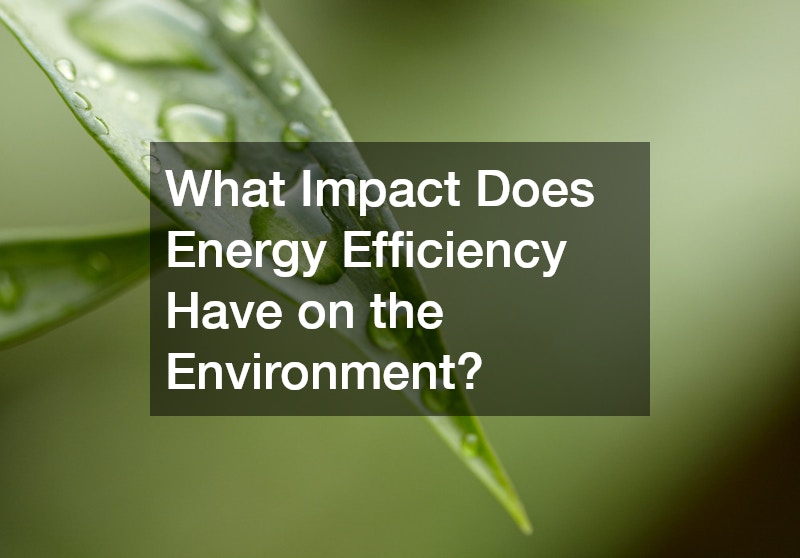
Energy-efficient homes not only save money but also contribute positively to environmental conservation.
Reducing Carbon Footprint
By consuming less electricity, gas, and fuel oil, your home emits fewer greenhouse gases. Over time, these reductions make a meaningful difference in combating climate change.
Conservation of Natural Resources
Efficient homes use fewer natural resources such as water, oil, and minerals. This conservation ensures long-term availability for future generations.
Supporting Renewable Energy
Homes designed with efficiency in mind can better integrate renewable energy technologies such as solar panels or geothermal heating systems, further minimizing fossil fuel reliance.
Decreasing Pollution
Using less energy leads to less pollution from power plants and vehicles. Cleaner air and water contribute to healthier communities and ecosystems.
Sustainability and Future Generations
Energy efficiency is an investment in the future. Every upgrade—from insulation and smart systems to sustainable flooring services—creates a lasting benefit for your family and the planet.
Final Thoughts
Energy efficiency doesn’t require large-scale renovations—small, well-planned projects can produce impressive results. Whether you’re working with a plumbing company to install efficient water heaters, contacting a roofing contractor for better insulation, or scheduling routine maintenance with a local HVAC company, every improvement brings you closer to a more comfortable, cost-effective, and environmentally responsible home. By taking these steps today, you can enjoy long-term savings and contribute to a more sustainable world.
 3 Warning Signs Your Windows Need Replaced
3 Warning Signs Your Windows Need Replaced 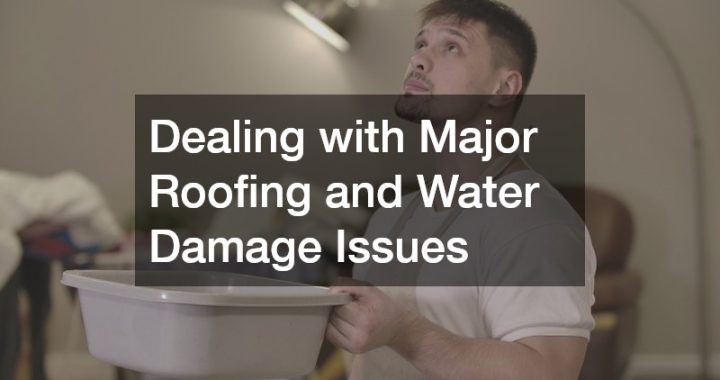 Dealing with Major Roofing and Water Damage Issues
Dealing with Major Roofing and Water Damage Issues  How to Choose the Right Home Remodeling Services for Your Project
How to Choose the Right Home Remodeling Services for Your Project  10 Ways Remodeling Improves Energy Efficiency and Comfort
10 Ways Remodeling Improves Energy Efficiency and Comfort 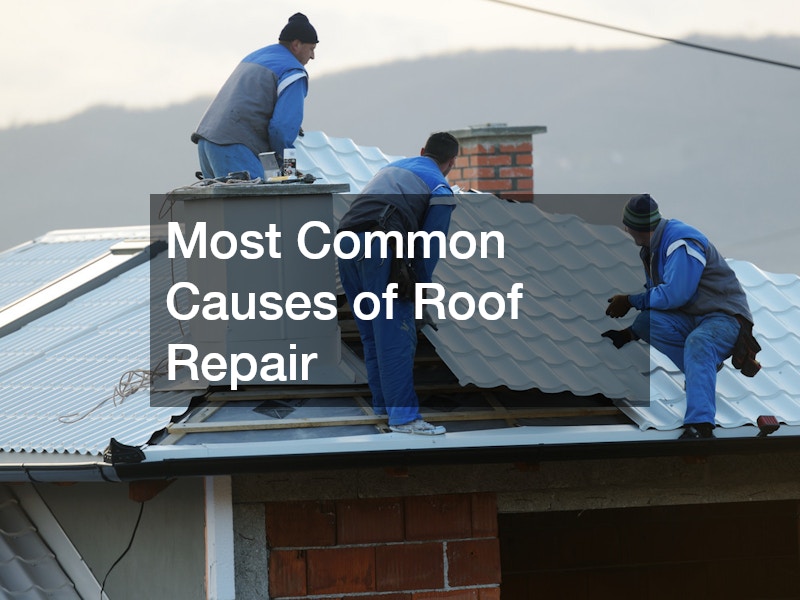 Most Common Causes of Roof Repair
Most Common Causes of Roof Repair  Affordable Skylight Services to Brighten Your Home Naturally
Affordable Skylight Services to Brighten Your Home Naturally 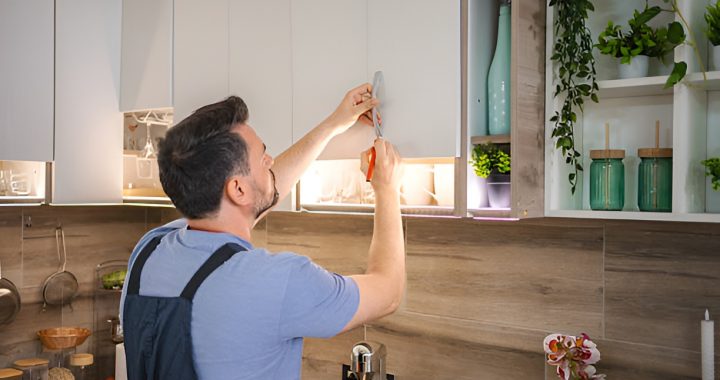 Where to Place Kitchen Cabinet Handles: Top Placement Tips for a Functional Kitchen
Where to Place Kitchen Cabinet Handles: Top Placement Tips for a Functional Kitchen 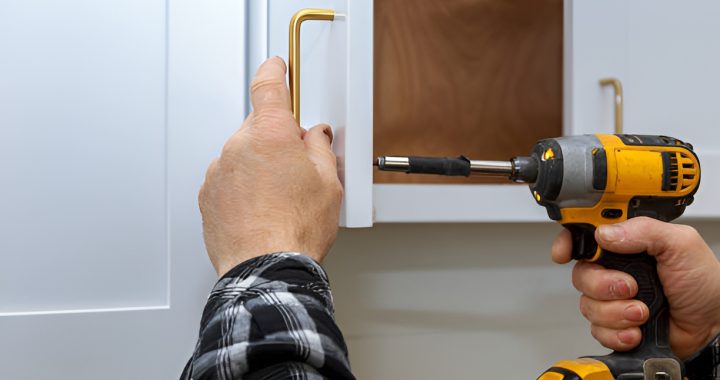 How to Install Kitchen Cabinet Handles on Drawers, Doors, and Different Cabinet Types
How to Install Kitchen Cabinet Handles on Drawers, Doors, and Different Cabinet Types  Balancing DIY Projects With Professional Help
Balancing DIY Projects With Professional Help